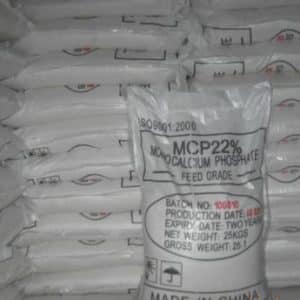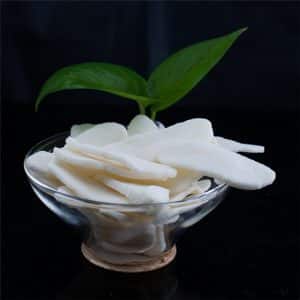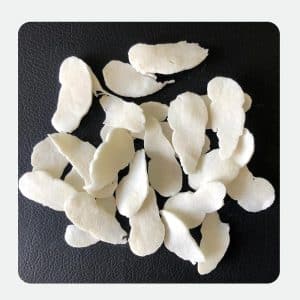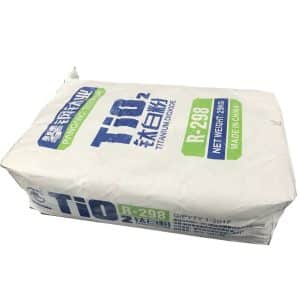Description
The Versatile Workhorse of Modern Chemistry: Understanding Poly Vinyl Alcohol and PVA 1799
Polyvinyl alcohol (PVA), a synthetic polymer with a wide range of applications, is a material that often goes unnoticed but plays a crucial role in numerous industries. Its unique properties, including its high tensile strength, film-forming ability, and water solubility, make it an indispensable ingredient in everything from adhesives to textiles. But not all PVAs are created equal, and understanding the subtle differences in grade is key to harnessing its potential. Let’s delve into the world of PVA, with a particular focus on a common grade: PVA 1799.
What is Poly vinyl Alcohol?
PVA isn’t actually produced directly from the polymerization of vinyl alcohol. Instead, it’s manufactured through the hydrolysis of polyvinyl acetate (PVAc). This process replaces the acetate groups with hydroxyl groups (-OH), resulting in a water-soluble polymer. The degree of hydrolysis, or the percentage of acetate groups replaced, is a key factor in determining the properties of the resulting PVA.
Key Properties of PVA:
Water Solubility: PVA is known for its ability to dissolve in water, a property that distinguishes it from many other common polymers. The degree of hydrolysis greatly influences its solubility, with higher hydrolysis leading to increased water solubility.
Film Formation: When PVA solutions dry, they form clear, strong, and flexible films. This ability makes PVA ideal for applications like packaging, coatings, and adhesives.
Tensile Strength: PVA exhibits good tensile strength, meaning it can withstand stretching and pulling forces without breaking.
Adhesive Properties: PVA’s natural stickiness and ability to adhere to various surfaces make it a common component in adhesives.
Biocompatibility: PVA is generally considered biocompatible and non-toxic, allowing its use in medical and pharmaceutical applications.
Understanding PVA Grades: Where Does PVA 1799 Fit In?
The “1799” designation typically refers to a specific grade of PVA, and these numbers are not universal across manufacturers. However, they often provide clues about the key characteristics of the polymer. Some of the common factors that differentiate grades like Poly Vinyl Alcoholare:
Degree of Hydrolysis: This is a crucial factor. For example, a PVA with a degree of hydrolysis around 99% will often be designated with a number close to ’99’. The ’17’ could refer to a specific manufacturer’s classification. PVA 1799 usually boasts a high degree of hydrolysis, meaning it has a high percentage of hydroxyl groups, resulting in excellent water solubility.
Viscosity: The viscosity of a PVA solution is another differentiating factor. Higher viscosity PVAs might be preferred for thicker coatings or adhesives.
Molecular Weight: The molecular weight of the PVA polymer affects its mechanical properties. Higher molecular weight PVAs are typically stronger but can be more difficult to dissolve.
Common Applications of PVA, often utilizing grades like PVA 1799:
Adhesives: PVA is a key ingredient in numerous adhesives, from woodworking glue to paper adhesive. Its high strength and rapid drying time make it a versatile option.
Textiles: PVA is used as a sizing agent for yarns, improving their strength and facilitating weaving. It’s also used in temporary protective coatings.
Packaging: PVA films can be used to create biodegradable and compostable packaging options.
Paper Industry: PVA is used as a paper coating to improve its printability and strength.
Construction: PVA is used as an additive in cement and plasters to improve their workability and adhesion.
Medical Applications: PVA hydrogels are used in wound dressings, drug delivery systems, and even contact lenses due to their biocompatibility and water-retention properties.
Agriculture: PVA can be used to encapsulate fertilizers and pesticides, controlling their release.
3D Printing: PVA is a common support material in 3D printing, as it can be easily dissolved in water after the print is complete.
PVA 1799: A Closer Look
While specifics may vary depending on the manufacturer, PVA 1799 is often characterized by:
High Hydrolysis: This characteristic gives it excellent water solubility and strong film-forming abilities.
Moderate Viscosity: It typically has a moderate viscosity, making it suitable for a variety of applications.
Good Adhesion: It possesses good adhesion properties to many substrates.
Conclusion:
Poly Vinyl Alcohol, and specifically grades like PVA 1799, are versatile and valuable materials with a wide array of applications. Their unique properties, including water solubility, film-forming ability, and biocompatibility, make them essential across various industries. While specific details may vary between manufacturers, understanding the basic principles of PVA and the characteristics defining different grades allows for the informed selection and application of this often-unseen workhorse of modern chemistry. When choosing a PVA grade, it is important to consult the manufacturer’s technical data sheet to ensure you are selecting the correct material for your specific application.
This article provides a comprehensive overview of PVA and its common applications, focusing specifically on the characteristics that are often associated with PVA 1799. Remember to consult manufacturer data sheets for specific characteristics and usage recommendations.







Reviews
There are no reviews yet.